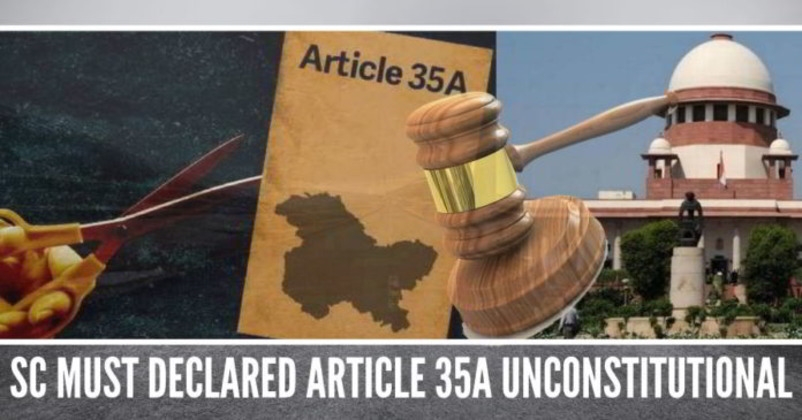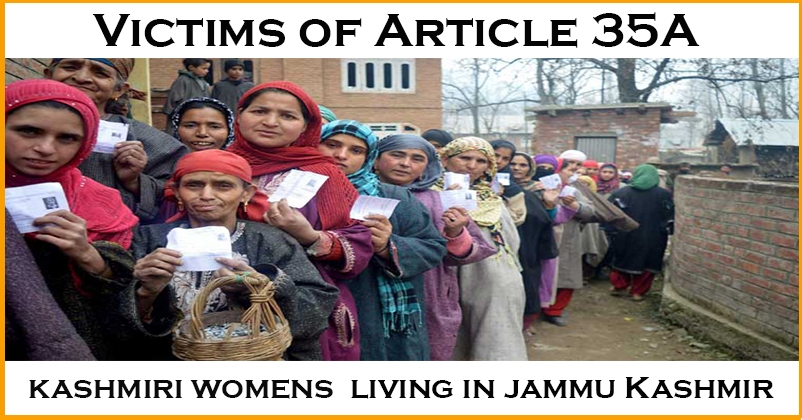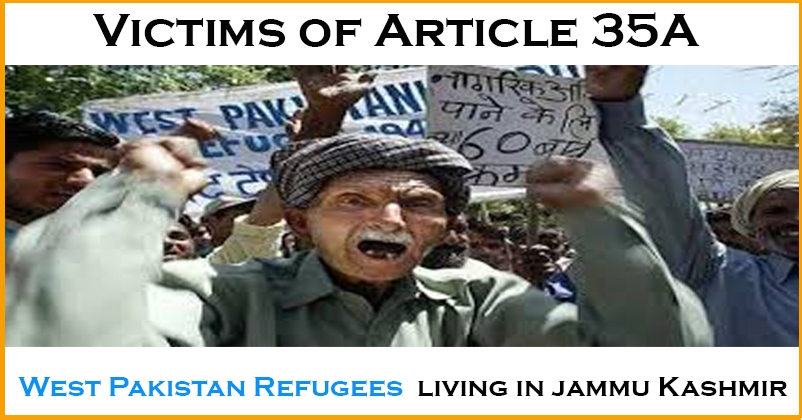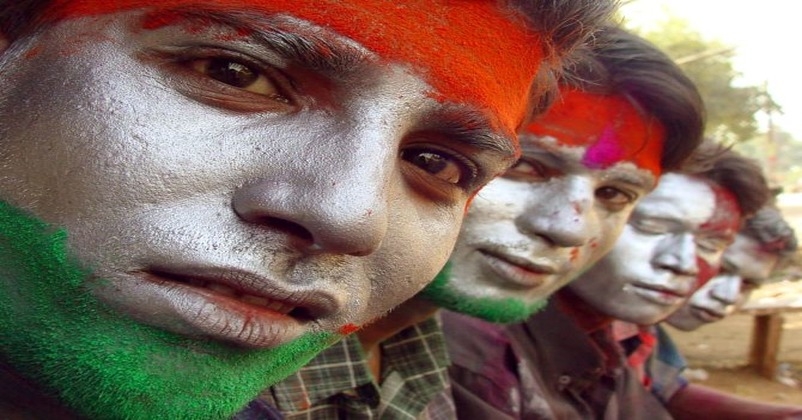All you need to know why abolishing Article 35A would be the right decision?
| 13-Feb-2019 |

Article 35A is once again in news after the hiatus of a few months and the Kashmir valley based separatists, politicians and a few other individuals in Kashmir valley started ranting about the links of identity with this discriminatory and unconstitutional provision. The recent uproar started when an appeal was moved in the Supreme Court by the Jammu and Kashmir State Administration that the hearing on Article 35A must be postponed till the time elected government takes the reign of the state. The separatists, Kashmir based politicians and a few other individuals from Kashmir valley started agitation and started issuing threats again as if there is no law above than what they dictate. Surprisingly, the camera of media houses stopped only in those areas of Kashmir valley where people want that 35A must not be scrapped. Hence, it is essential to know certain facts related to it.
Why Article 35A is unconstitutional
Article 35A is that part of the Constitution of India which was added by the President of India without getting it discussed and approved by the Parliament of India. Though many of the proponents of Article 35A state that the President of India has used the power conferred on him under Article 370 of the Constitution of India yet it gives power to him to implement only those provisions of the constitution, which have already been available in the Constitution. And Article 35A is the addition of a provision in the Constitution that requires amendment in the constitution and amending power rests with the Parliament of India under Article 368 of the Constitution. The basic difference in monarchy and democracy is that the decisions are taken collectively in the case of the latter and India being a democracy did not create a monarch since its independence. Further, the constitutional amendment has not taken place for the purpose of adding this provision, as the addition of this provision is not available in the list of constitutional amendment list. The provision is also not found even between Article 35 and Article 36 or anywhere in the Constitution except appendix.
How Article 35A give constitutional sanction to discrimination
Article 35A gives legal sanction to discriminate on the basis of gender, caste, class, and place of origin in clear contravention to the values like equality, liberty, fraternity etc. enshrined in the Constitution of India. The victims of this provision are:

Women: This provision ensures the dominance of male over female, though all the political parties are becoming champions of women empowerment. Because of Article 35A, the woman, her spouse, and children remain legitimate residents of J&K till the time she is marrying a PRC holder of the state. But if she chooses the life partner of her choice and he happens to be a resident of any other state of India, the woman has to move out of the state as the non-PRC holders are not welcomed to J&K because of this provision. Her offsprings are rendered illegitimate because they even cannot become permanent state subjects. The more traumatic situation would be with the separated and widowed woman, whose children have no future in the land where their mother has born. So, she has to make a choice between her own future and the future of her children but she cannot opt for both because of this provision.
-_1_H@@IGHT_420_W@@IDTH_802.jpg)
Dalits (Valmikis): These are people who were brought to J&K in 1957 when the sweepers of J&K went on an indefinite strike. They were promised that Article 35A would be relaxed for them but it was relaxed to offer them the job of sweeper only irrespective of their talent and qualification. Unlike the other states where the caste dominance is more pronounced, here the state is ruled not by Pandits but Muslims, who are ensuring that the development of Dalits is restricted. Even admission to government-run educational institutions debarred for them.

West Pakistan Refugees (WPR): They are those persons who have migrated to J&K during 1947 but still they are not conferred PRC. Most of the people among them are from OBC and SC categories yet they are denied basic freedom and choices because of Article 35A. They cannot get admission in government-run education institutions, own a house in the state, benefit of government schemes, employment in the state and vote in the state assembly and local elections.
Gorkhas: They settled down in the state some 200 years back and their ancestors have fought the battles for the state but even they are not given PRC. Hence, they are also facing problems like that of WPR.

Residents of other states: Though the entire country welcomes the people from J&K yet the few Kashmir valley based people creating a wedge between the two. The people from J&K can get the benefit like any other citizen of India in any part of the country and get into jobs but certain Kashmir valley based people have created hysteria against them and using this provision to ensure that the gap must sustain.
Opposition to abrogation of Article 35A is restricted only to Kashmir Valley
Kashmir region is comprised of three valleys viz. Lolab Valley, Gurez Valley, and Kashmir Valley but the opposition to the abrogation of Article 35A come only from Kashmir Valley whereas the rest of the two valleys never come in news. The other two major parts of J&K viz. Jammu and Ladakh never opposed the abrogation of Article 35A. therefore, it is clear that support for Article 35A is restricted to Kashmir valley and that too in the few districts.
Creating phobia of Hindutva forces and BJP is a tactic to divert attention from real issues
Article 35A discriminates against 47% of the state population i.e. females. Also, lakhs of people from Valmiki, Gorkhas, and WPR are discriminated because of this Article. Additionally, crores of Indian citizens are discriminated because of Article 35A. Yet certain Kashmir valley based people are saying that it is the agenda of Hindutva forces and BJP. But with the above facts, it is clear that a few people from Kashmir valley trying to divert the attention from various important issues related to Article 35A.
Article 35A is the black spot on the democratic and secular India because it gives legal sanction to discriminate. The legal impunity given to this provision is against the basic principles of the Constitution of the country. Even, the addition of this provision was done in an unconstitutional way. Therefore, this discriminatory and unconstitutional provision must be abrogated by the Apex Court like it has done in its various previous judgments on different matters.

